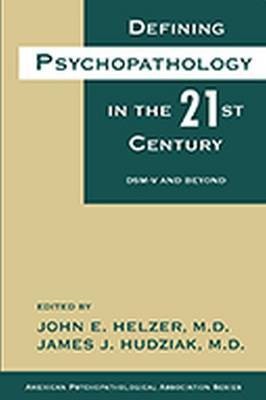Defining Psychopathology in the 21st Century(English, Paperback, American Psychopathological Association)
Quick Overview
Product Price Comparison
Among today's astounding research discoveries, perhaps the most fascinating is the mapping of the human genome and its implications for a vastly improved understanding of how genes affect our physiology and behavior. With that understanding comes a critical need to establish a diagnostic taxonomy for psychiatric illness that is more precise but still clinically relevant. This volume responds to that need. It highlights the shortcomings of current categorical diagnoses, such as those used in DSM-IV, for future research needs in behavioral disorders in general and psychiatric genetics in particular. With a chapter by each distinguished neuroscientist who presented at the 2000 American Psychopathological Association (APPA) meeting, this volume is divided into four sections: Definitional Tensions, which discusses the difficulties with the current categorical diagnostic system; Imaging Psychopathology, which presents research demonstrating how imaging technologies can tremendously improve our illness definitions; Longitudinal Studies, which details what we can learn from epidemiological and other longitudinal studies; and Exploring Alternatives, which discusses the application of dimensional classification systems in genetics research in psychopathology, with a fascinating chapter on using new methodologies for treating subsyndromal or pre-schizophrenia, a taxonomic condition defined herein as "schizotaxia." This unique collection represents a significant step in developing approaches to classification that will lead to more accurate diagnoses and treatments for patients and a broader range of taxonomic options for researchers. As such, it will also be welcomed by psychiatric clinicians and educators, as well as by anyone interested in genetics and how it governs human behavior.


